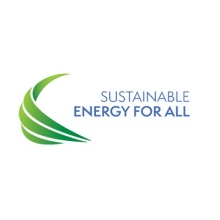

SE4All Energy Access Online Forum
Authors
-
 Debajit Palit (1)
Debajit Palit (1)
-
Barbara Ungari (1)
-
 Tom Erichsen (2)
Tom Erichsen (2)
-
 Mary Roach (2)
Mary Roach (2)
-
 Salvatore Chester (8)
Salvatore Chester (8)
-
 David Stein (1)
David Stein (1)
-
 Frank Rodriguez (1)
Frank Rodriguez (1)
-
 Princy Elamthuruthil (5)
Princy Elamthuruthil (5)
-
 Jarnail Singh (1)
Jarnail Singh (1)
-
 Xiaochen Zhang (1)
Xiaochen Zhang (1)
-
 Jive Admin (1)
Jive Admin (1)
-
 Carole LeBlanc (1)
Carole LeBlanc (1)
-
 Mahesh Bhave (3)
Mahesh Bhave (3)
-
 Harald Schützeichel (1)
Harald Schützeichel (1)
-
 Karin Anna Maria Lerner (1)
Karin Anna Maria Lerner (1)
-
 Yann Loic Tanvez (118)
Yann Loic Tanvez (118)
-
 Mwangi Chege (2)
Mwangi Chege (2)
-
 Thomas ANDRE (2)
Thomas ANDRE (2)
-
 Gunjan Gautam (1)
Gunjan Gautam (1)
-
 Laura Sundblad (3)
Laura Sundblad (3)
-
 Kip Patrick (1)
Kip Patrick (1)
-
 William Tarpai (1)
William Tarpai (1)
-
 Neda Oreizy (7)
Neda Oreizy (7)
-
 C4D Administrator (3)
C4D Administrator (3)
-
 Syed Adeel Abbas (11)
Syed Adeel Abbas (11)
Blog » The way towards universal access - putting value on electricity services.pdf
The way towards universal access - putting value on electricity services.pdf
There are currently an estimated 1.3 billion people without access to modern electricity. The UN-driven Sustainable Energy for All (SE4All) initiative has the objective of achieving universal access to modern electricity by 2030. However, no concretely feasible and financially viable solution and strategy has been proposed to date. The International Energy Agency’s (IEA) New Policies Scenario projects about 1 billion people still to be without access to modern electricity service in 2030, and the Energy for All Case estimates a total cost of universal access of USD 1 trillion – way above the actual funding expected to be available.
New approach needed. The approach taken by the IEA and others to designing electrification strategies needs to change as it is too focused on costs per unit of power delivered instead of cost per service delivered, and as it normally does not take budget constraints explicitly into account when designing solutions and strategies to reach the objectives. This analysis by Differ describes how decision-makers should approach the electrification challenge and consequently be able to achieve the objective of universal access to modern electricity services by 2030 – and with the highest possible impact on human and economic development for the funds invested.
The way forward needs to:
An approach not following these principles will most likely fail to provide universal access. It will likely lead to major errors in the electrification strategies, inefficient use of limited public money and hundreds of millions of people unnecessarily left without access to modern electricity services in 2030.